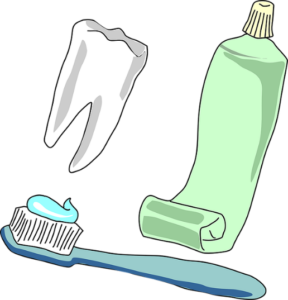Dentist 37804
 Do you suffer from regular sensitivity? Teeth sensitivity is often misunderstood, but our dental team can help you find relief. We’re here to separate the fact from fiction in sensitivity.
Do you suffer from regular sensitivity? Teeth sensitivity is often misunderstood, but our dental team can help you find relief. We’re here to separate the fact from fiction in sensitivity.
MYTH: People’s teeth are supposed to hurt when they bite into cold or hot foods.
Feelings of sensitivity when eating hot or cold foods should not be a typical experience. If you suffer from hypersensitivity, it can actually be a sign that something is wrong. There are many causes for hypersensitivity including cavities, older dental fillings, worn tooth enamel, gum disease, and exposed tooth roots. Dentin hypersensitivity is a common issue. A visit to our dental office can help you find relief.
MYTH: Desensitizing toothpastes are not effective in reducing teeth sensitivity.
Desensitizing toothpastes include compounds like potassium nitrate or strontium chloride. These ingredients work by preventing pain signals being transmitted between the surface of your tooth and the inside nerves. It may take several applications of the toothpaste until you will feel a noticeable difference. Prescription strength toothpastes are also an option for more severe and prolonged feelings of sensitivity. Ask our dentist to recommend a toothpaste for your needs.
MYTH: You shouldn’t drink coffee or eat ice cream if you have sensitive teeth.
You don’t have to be limited from eating or drinking your favorite foods. It is important to check with our dentist to determine the root cause of your discomfort. Based on your cause, we may recommend a prescribed toothpaste or another treatment. You should always maintain proper oral care to prevent sensitivity.
MYTH: Sensitivity never results in tooth loss.
Sensitivity may in fact be a precursor to tooth loss. Gum recession, which exposes the roots of your teeth, can cause general sensitivity among several teeth at the same time. Prolonged and untreated gum recession can lead to tooth loss. Tooth decay can also cause sensitivity. When left untreated, it may lead to an infection in the gums or jaw and risk spreading to other areas in the head or neck. Early diagnosis and treatment can make a difference in keeping your smile healthy.
MYTH: Sensitivity does not have a cure.
Depending on the cause, there are many ways to treat teeth sensitivity. Proper oral hygiene is the best way to prevent any sensitive tooth pain. If you experience sensitivity, schedule a comprehensive dental examination today.
We look forward to seeing you. Contact our team to schedule your next visit.
1105 E. Lamar Alexander Parkway
Maryville, TN 37804
(865) 984-7757


 Determining Which Type of Denture is Best for You
Determining Which Type of Denture is Best for You  Did you know that chocolate might not be as bad for your teeth as people may have thought? You can now eat your favorite treat without feeling guilty. Studies have shown that there are benefits to eating chocolate, however, not all chocolate is created equal. It is important to note that these benefits apply to dark chocolate, not milk chocolate or white chocolate. Dark chocolate is rich in Fiber, Iron, Magnesium, Copper, Manganese and a few other minerals.
Did you know that chocolate might not be as bad for your teeth as people may have thought? You can now eat your favorite treat without feeling guilty. Studies have shown that there are benefits to eating chocolate, however, not all chocolate is created equal. It is important to note that these benefits apply to dark chocolate, not milk chocolate or white chocolate. Dark chocolate is rich in Fiber, Iron, Magnesium, Copper, Manganese and a few other minerals. When a tooth is extracted, your blood cells clot over the site of the tooth to protect your bone, nerves, and tissue. However, some patients experience dry sockets, a condition where blood clotting does not occur. Here’s what you need to know about dry sockets after tooth extraction.
When a tooth is extracted, your blood cells clot over the site of the tooth to protect your bone, nerves, and tissue. However, some patients experience dry sockets, a condition where blood clotting does not occur. Here’s what you need to know about dry sockets after tooth extraction. Nearly everyone has at least one habit that they wish they could break. Did you know that some of them can affect your oral health? Here are a few common habits and tips for how to break them.
Nearly everyone has at least one habit that they wish they could break. Did you know that some of them can affect your oral health? Here are a few common habits and tips for how to break them. Don’t wait until you’re in pain to see your dentist! Most people make time to clean out the house, car, garage, or closets at least twice a year. Why not include your oral health on your “to do” list?
Don’t wait until you’re in pain to see your dentist! Most people make time to clean out the house, car, garage, or closets at least twice a year. Why not include your oral health on your “to do” list? Did you know your oral health can impact your overall health? We’ve compiled a list of 5 tidbits about your teeth and oral health.
Did you know your oral health can impact your overall health? We’ve compiled a list of 5 tidbits about your teeth and oral health. Sugary, sticky, and sweet candies can damage your teeth by increasing your risk of decay. Though gum can be considered a type of candy, chewing sugarless gum approved by the ADA can actually help protect teeth and prevent tooth decay. Here’s what you need to know about gum and your teeth.
Sugary, sticky, and sweet candies can damage your teeth by increasing your risk of decay. Though gum can be considered a type of candy, chewing sugarless gum approved by the ADA can actually help protect teeth and prevent tooth decay. Here’s what you need to know about gum and your teeth. During a comprehensive dental examination, our team will look for signs of oral cancer. Early detection is key with oral cancer. If caught early, most forms of oral cancer are treatable. Our dental team is trained and educated to identify oral cancer.
During a comprehensive dental examination, our team will look for signs of oral cancer. Early detection is key with oral cancer. If caught early, most forms of oral cancer are treatable. Our dental team is trained and educated to identify oral cancer.